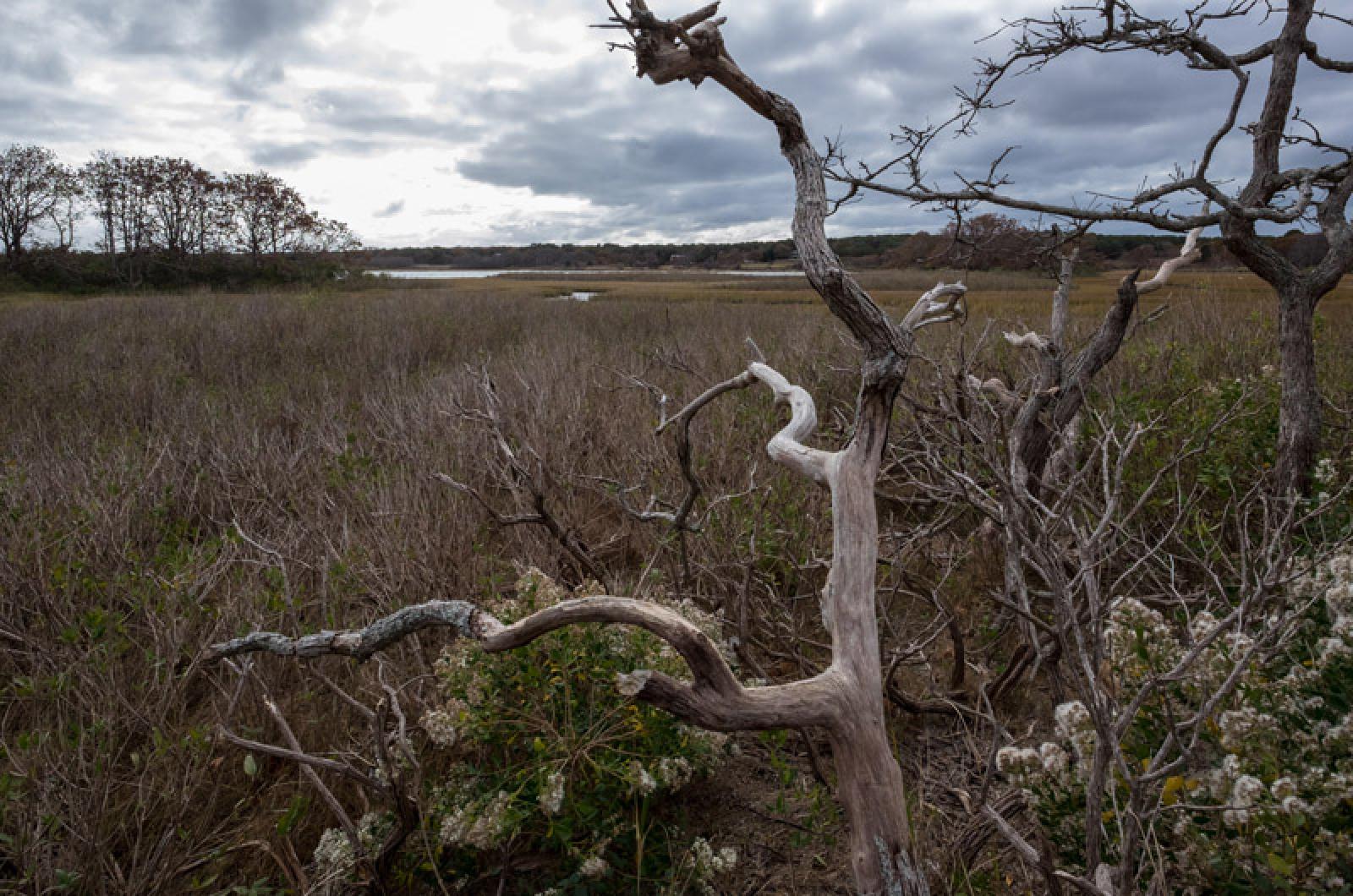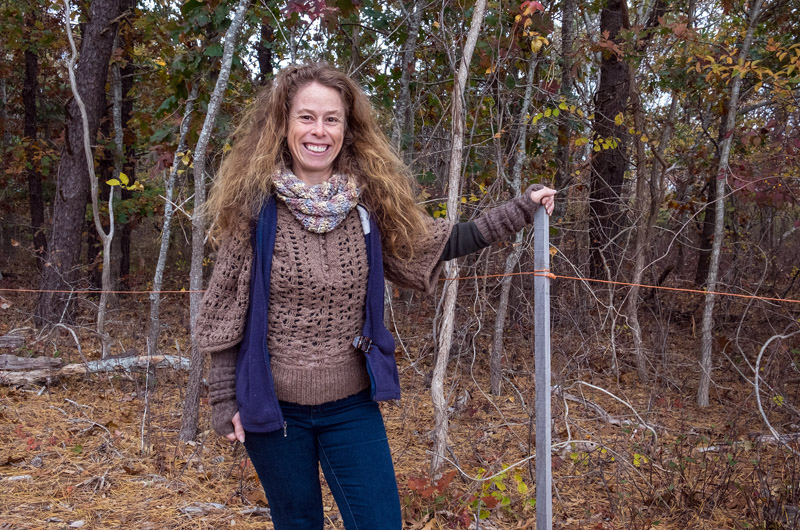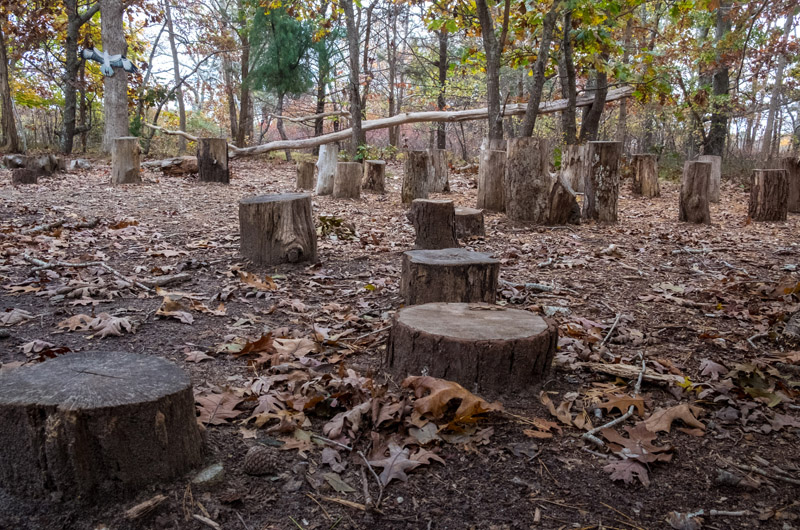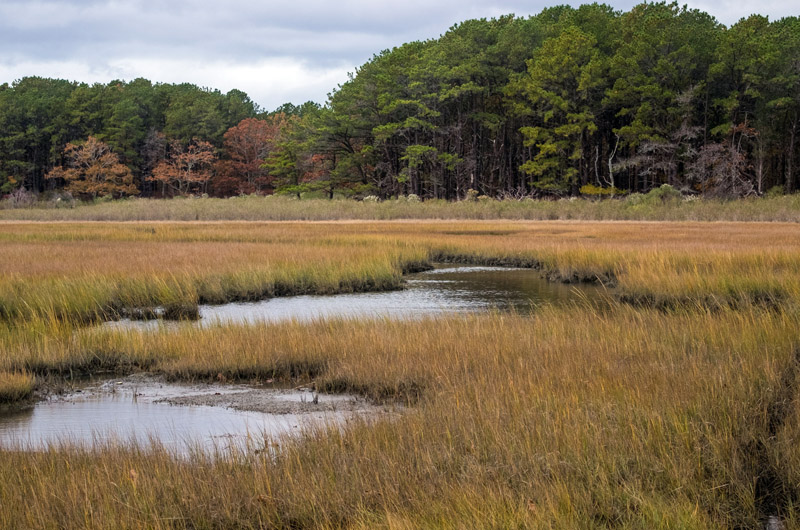Suzan Bellincampi, the director of Mass Audubon Felix Neck Wildlife Sanctuary, kneeled down under a tangle of brush, a stick in hand poking at a lump of otter scat.
“Do you know what otters eat?” she asked, never missing a teaching moment. The answer was in the scat where iridescent fish scales glittered next to a bit of crab shell. Ms. Bellincampi had spotted the otter latrine amid depressed reeds not far from water’s edge.
Felix Neck is a wildlife sanctuary and a learning center. Otters, butterflies, birds, snakes, frogs, turtles, fish and deer make their home in the 350 acres of forest, fields and ponds, and thousands of people visit every year to learn about, be near and absorb nature. For children, the Fern and Feather Natural History Day Camp at Felix Neck can be their first introduction to nature and offers programs for kids from four to 17.
Fern and Feather focuses on teaching children stewardship of land, along with respect and understanding of nature. In the past 10 years, the camp program has doubled. Two years ago, they upped their accommodation to approximately 60 kids a week. But the increase in the camp put a strain on the already limited indoor space. Though the campers spend most of the time outside exploring the property, when inclement weather hits the entire camp piles into the nature center. Office space is converted into play space. Aquatic tanks are shifted for counter room. Schedules are abruptly disrupted.
This summer, the staff decided the growing camp needed its own accommodations. In September, Felix Neck started a capital campaign to raise $200,000 to build a second barn for camp use. If they meet their goal by the end of December, the building could be functional for the 2017 summer season. They envision a 1500 square-foot, three-season barn built on the cleared lot where campers now congregate. It will be a simple building, uninsulated and adorned with only the basics like cubbies and a sick bay.
“It’s the smallest campaign with the biggest impact,” said Ms. Bellincampi. “We have a critical need and a very short time frame.”
Approximately $125,000 has been raised so far, but December 31 is almost here, the critical point for raising enough funds to start work so the barn will be ready for this summer.
In its 47 years as a sanctuary, little has changed on the Felix Neck property.
The land has a well documented history dating back to the Wampanoag people and is named for the last Wampanoag to live on it, Felix Kuttashamaquat. It was then owned and farmed by the Smith family for generations before Walter Smith Jr. sold the 200 acres to George Moffett Jr. in 1963. Mr. Moffett, a sailor, photographer, writer and bird enthusiast, intended to build a home on the property and save the rest for conservation. On an October day, Mr. Moffett showed the land to Tom and Anne Hale and Mrs. Hale asked him if they could use the land to educate children. Through the work of Mrs. Hale, along with Jackie Renear and Elizabeth Goodale, Fern and Feather Natural History day camp began in 1964.
“Anne Hale, I guess you could call her the mother of Felix Neck,” said Augustus Ben David 3rd, the first director of the sanctuary. He counts all three women as his great mentors.
Felix Neck opened as a full-time sanctuary on Sept. 2, 1969, and Mr. Ben David, a third generation Islander, naturalist, falconer and educator, became the first director at age 23. One of his first tasks was converting the existing barn into a nature center.
“I worked, I think, two years straight, seven days a week just to get the place cleaned up,” Mr. Ben David said. By 1971 the property had electricity, hand drilled wells and a house for the director. Sanctuary staff plowed the old fields and grew millet and milo for the wildlife and dug out ponds that had filled with silt.
“Mrs. Hale often quoted one of the great events of her life was when she saw that first school bus drive in,” Mr. Ben David said.
And as the children on that first school bus grew up, their children then came to Felix Neck, each generation learning the importance of stewardship. “We don’t let kids pick flowers,” said Ms. Bellincampi. “We want them to understand if you leave it here someone else will see it and enjoy it or there might be a bee that needs that flower. So it’s not don’t do this, it’s why it’s better to leave it for others, leave it for wildlife.”
So each year, flowers and wildlife return building new memories for new generations of campers and visitors.
“It’s something that connects a lot of Islanders, the love of this place,” said Ms. Bellincampi. “No matter what you do, you remember your time here.”
The electrician who recently wired their building went to camp at Fern and Feather, she said.
“He didn’t become a biologist,” she said. “It doesn’t matter. He still has a respect and appreciation for nature.”
Chelsea Barbini, a Vineyard native, went to the camp every year she could as a child and then sent her own kids to the camp. She remembered when she was finally old enough to go on the overnight trip.
“We’d go on night walks, you know, go out with out flashlights and then I remember getting up in the morning and picking blueberries to make pancakes,” Ms. Barbini said. She now lives in Pepperell, but when her family visits the Vineyard for the summer, her two kids, Taylor and Phoebe have attended camp.
“They are both such water kids,” Ms. Barbini said. “They loved doing anything by the shore.”
Kevin Montambault, a camp counselor and master fort builder, wrote his college admissions essay about a waterside experience at the camp.
“Soon I was surrounded by campers all peering into my hands at the crab I had caught,” he wrote. “I told them what kind of crab it was, what it likes to eat, its role in the ecosystem, where to find it, and most importantly how to catch it. Soon after, they went running off into the water with their nets swinging high above their heads, yelling about what amazing things they were going to catch.”
For Mr. Ben David, Felix Neck was his home for 36 years and four months. He remembers demonstrating to visitors the power and wonder of wildlife through birds of prey, including his now 34-year-old golden eagle Chameli, along with otters, turtles and snakes. He recalls hand raising an otter pup named Scuba Joe in the mid-1970s. Scuba Joe had been caught by a dog when he was just a baby. Mr. Ben David would go for winter walks and Scuba Joe would follow him for miles. In the summer, they would go swimming on State Beach.
“I also had a big 125-pound German Shepherd and they became bonded so they’d romp around the fields and play with each other,” he said.“It was a marvelous unbelievable experience.”
When Mr. Ben David retired, Ms. Bellincampi took over as director. Previously she had been the education director of the Trustees of Reservations. She said that everyone knew she should apply for the director position even before she did. She also admitted to being initially intimidated by the legacy of the Felix Neck.
“It’s the place and Gus Ben David is the guy,” she said.
But ten years later, Ms. Bellincampi has her own special memories with the property. She was married in the amphitheater, centered around an old stone foundation amid a grove of trees and vines. Her husband had discovered the grove when they were living on the property. Two teams of AmeriCorps volunteers helped clear out the vines and set up the stones to create the amphitheater.
“It’s like magic, it really is,” she said. With the new building, the camp will have room to grow and more campers can discover the magic of Felix Neck for themselves, Ms. Bellincampi said. At Felix Neck there is always a careful balance of engagement and conservation.
“Don’t overuse it,” Mr. Ben David said of the land. “Use it in proportion.”
And though they need the camp barn, Ms. Bellincampi said most of camp will still be outside.
“It’s funny because were trying to build a building but my favorite place for kids to be when it rains is out playing in the mud,” she said. “We leave them tired, dirty and happy.”
To donate, visit massaudubon.org/felixneckcampbarn or contact sanctuary director Suzan Bellincampi at sbellincampi@massaudubon.org or education coordinator Josey Kirkland at jkirkland@massaudubon.org. Or call Felix Neck at 508-627-4850.












Comments
Comment policy »